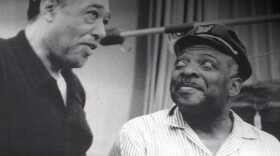Texas officials have offered the clearest picture yet of the gunman who killed 19 children and two teachers at Robb Elementary School in Uvalde, Texas.
It comes as part of a 77-page Texas House committee report that is the most thorough evaluation so far of the security of the school, missed warning signs about the shooter and the law enforcement response to the May 24 shooting.
Investigators describe 18-year-old Salvador Ramos as an isolated individual who became obsessed with school shootings after many years of struggling at home and at school, but who received no mental health support.
The report gives a glimpse of the gunman's own experiences at Robb Elementary School in the same classroom where the shooting occurred, to his behavior in the year and weeks leading up to the shooting that earned him the nickname "school shooter" among those who knew him.
The investigative committee identified many of the gunman's motives, including a large one to seek "notoriety and fame." The committee refused to use his name in the report.
The gunman had an unstable home life
Born in Fargo, N.D., he grew up in Uvalde without consistent parental figures, in unstable housing conditions and in "relative poverty." While his life at home was fractured, life at school did not necessarily appear better.
By the time he reached fourth grade, investigators say he was clearly struggling academically as he was identified as "at-risk." A speech impediment that was not addressed or treated likely contributed to an overall lack of friends and bullying by other students, according to testimony from his family members.
Problems continued into middle school and high school, when the gunman "had declining attendance, with more than one hundred absences annually beginning in 2018 along with failing grades and increasingly dismal performance on standardized and end-of-course exams."
At age 17 he had only completely ninth grade and was then involuntarily withdrawn from Uvalde High School because of his lack of attendance and poor academic performance. After dropping out of high school, the gunman "turned down a dark path," becoming more isolated from those around him, according to the report.
"The attacker began to demonstrate interest in gore and violent sex, watching and sometimes sharing gruesome videos and images of suicides, beheadings, accidents, and the like, as well as sending unexpected explicit messages to others online," the report said.
He also sent "over-the-top threats" on social media. Those sent to women included "graphic descriptions of violence and rape." The aggression toward women was not only online. A job at Whataburger in late 2021 ended when he was fired for threatening a female co-worker.
While some of the threats may have been reported on the platforms where they took place, they did not appear to result in restrictions on the gunman's usage and did not appear to be flagged for any law enforcement agencies.
He legally purchased two AR-15-style rifles just after turning 18
Though the gunman did not purchase the guns until he was 18, he started buying accessories and ammunition in the months leading up to the shooting, the report said. Living at home, he did not have many living expenses which allowed him to save money that he said was "for something big" that people around him would see about in the news, but those he told thought he meant something like a car or apartment.
When he went to pick up the guns, the owner of the store said he looked like an "average customer with no 'red flags' or suspicious conditions," but others in the store described him as " 'very nervous looking' and that he 'appeared odd and looked like one of those school shooters.' "
Investigators say there was nothing in the law to prevent him from buying "two AR-15-style rifles, 60 magazines, and over 2,000 rounds of ammunition" as soon as he turned 18.
While the quick succession of gun sales was reported to the Bureau of Alcohol, Tobacco, Firearms and Explosives, it was not reported to local law enforcement. Only handgun purchases are required to be reported to local police. The report concluded that "there apparently was no information actually known to local Uvalde law enforcement should have identified this attacker as a threat to any school campus" before the shooting occurred.
Copyright 2022 NPR. To see more, visit https://www.npr.org.





